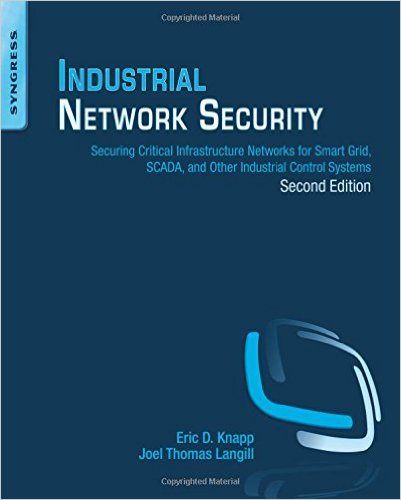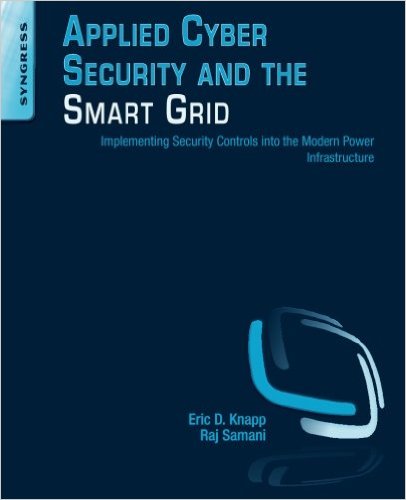| Instructor: Dr. Raheem Beyah | |
|---|---|
| Office | Klaus 2308 |
| Office hours | Friday, 10am or By appointment |
 |
|
| Head Teaching Assistant: Tohid Shekari | |
|---|---|
 |
|
| Instructor: Dr. Raheem Beyah | |
|---|---|
| Office | Klaus 2308 |
| Office hours | Friday, 10am or By appointment |
 |
|
| Head Teaching Assistant: Tohid Shekari | |
|---|---|
 |
|
The course covers introductory topics in cyber-physical systems security. The goal is to expose students to fundamental security primitives specific to cyber-physical sysytems and to apply them to a broad range of current and future security challenges. Much of the course is taught with the focus on one instance of cyber-physical sytems - Industrial Control Systems (CPSs). However, students will be expected to generalize the concepts for other cyber-physical systems.
Students will work with various tools and techniques used by hackers to compromise computer systems or otherwise interfere with normal operations. Students will also use tools that are uniques to interacting with cyber-physical systems. The purpose of the class is NOT to teach you how to be a hacker, but rather to teach you the approaches used by hackers so you can better defend against them. Students will be graded based upon exams and completion of assignments
Policy on Commenting Software:
Fully commenting code, even code that you were given as a starting point is mandatory. This is one of the instructor's pet peeves. You must fully comment all code you turn in and must include comments to explain all of the code you turn in. (Even those parts of the code you did not write but were given as a starting point). You must include in the comments an explanation of what the purpose of the code is, the date the code was originally written, and the date the code was last modified must be in the comments. The last date modified must be correct and in the comments.
Policy on Handouts:
The handouts can be downloaded from the Canvas which requires authentication. Handouts with proprietary or copyrighted material will be put on the protected page and should not be made publicly available by students.
Prerequisites: computer networking class, information security class, and programming experience.
There are two required textbooks. We cover lots of really good material and no one textbook has it all. These are excellent references and will serve you well in future jobs or research projects. We will also occasionally review conference and journal publications.
 |
Industrial Network Security, Second Edition: Securing Critical Infrastructure Networks for Smart Grid, SCADA, and Other Industrial Control Systems (2nd Edition), by Eric D. Knapp and Joel Thomas Langill, ISBN: 978-0124201149 |
 |
Applied Cyber Security and the Smart Grid: Implementing Security Controls into the Modern Power Infrastructure (1st Edition), by Eric D. Knapp and Raj Samani, ISBN: 978-1597499989 |
|
|
|||||||||||||||||||||||
Responsibility for Material:
Students are responsible for all material in assigned sections of texts and other materials, even if not explicitly covered in lecture. Students are also responsible for all material covered in lecture.
Paper Presentation:
In order to get on the cutting-edge research, you must keep up with recently published papers. To achieve this goal, each student will present a paper in the class. Each Thursday, we will have three presentations. You can either choose your paper from the spreadsheet or find your favorite paper from top security conferences. Looking at the related work section of the recommended papers is a good way to find other papers. Everyone should sign up for presentation. Each presentation should take 20-25 minutes and the relevant discussions/questions will continue on piazza. In order to get the full credit of this section, each student should actively participate in the presentation discussions on piazza as well as giving his/her own presentation. If you could not find any free time slot for your presentation in the spreadsheet, you need to prepare a YouTube video containing your presentation and post its link to piazza before the begining of December.
Final Project:
In this semester, each student will involve in a research project, which should focus on solving open problems in the field of CPS security. Team projects are allowed; but they should have relatively large contributions. The deadline for submitting your project proposal (maximum two pages) is November 1st. You will present the final results of your research work in the last two weeks of the class. Also, you need to submit a final report of your project before December 12th. The best among these projects will likely lead to publications (I will help this happen). You will hear more on this later in the class.
Late Turn-in and Re-grading:
Assignments can be turned in two days after the due date and will be subject to a 20% penalty. The grade for the assignment will be zero after this window.
Exams and projects will not be considered for re-grading later than 48 hours after they are returned (or grades released). Re-grading requests should be submitted in writing with a specific explanation of the possible grading error.
Academic Honesty:
Although students are encouraged strongly to communicate with each other to assist in learning the course material, all students are expected to complete course work individually (unless instructed otherwise), following all instructions stated in conjunction with exams and assignments. All conduct in this course will be governed by the Georgia Tech honor code. Additionally, it is expected that students will respect their peers and the instructor such that no one takes unfair advantage of any other person associated with the course. Any suspected cases of academic dishonesty will be reported to the Dean of Students for further action. Please see the school's full policy in here.
Excused Absence Policy
Link
Disability Services Statement
If needed, we will make classroom accommodations for students with documented disabilities. These accommodations must be arranged in advance and in accordance with the Office of Disability Services Link
Link to class Piazza site
A tentative schedule of lectures (subject to change) is provided below.
Class Deliverables
Topic(s)/Lecture(s):
Required Readings/Activities:
Recommended Readings/Activities:
Paper Presentations:
Topic(s)/Lecture(s):
Required Readings/Activities:
Recommended Readings/Activities:
Paper Presentations:
Topic(s)/Lecture(s):
Required Readings/Activities:
Recommended Readings/Activities:
Paper Presentations:
Topic(s)/Lecture(s):
Required Readings/Activities:
Recommended Readings/Activities:
Paper Presentations:
Topic(s)/Lecture(s):
Required Readings/Activities:
Recommended Readings/Activities:
Paper Presentations:
Topic(s)/Lecture(s):
Required Readings/Activities:
Recommended Readings/Activities:
Paper Presentations:
Topic(s)/Lecture(s):
Required Readings/Activities:
Recommended Readings/Activities:
Paper Presentations:
Paper Presentations:
Topic(s)/Lecture(s):
Required Readings/Activities:
Recommended Readings/Activities:
Paper Presentations:
Topic(s)/Lecture(s):
Required Readings/Activities:
Recommended Readings/Activities:
Paper Presentations:
Topic(s)/Lecture(s):
Required Readings/Activities:
Recommended Readings/Activities:
Paper Presentations:
Topic(s)/Lecture(s):
Required Readings/Activities:
Recommended Readings/Activities:
Paper Presentations:
Topic(s)/Lecture(s):
Required Readings/Activities:
Recommended Readings/Activities:
Paper Presentations:
Topic(s)/Lecture(s):
Required Readings/Activities:
Recommended Readings/Activities:
Tuesday Presentations:
Thursday Presentations:
Tuesday Presentations: